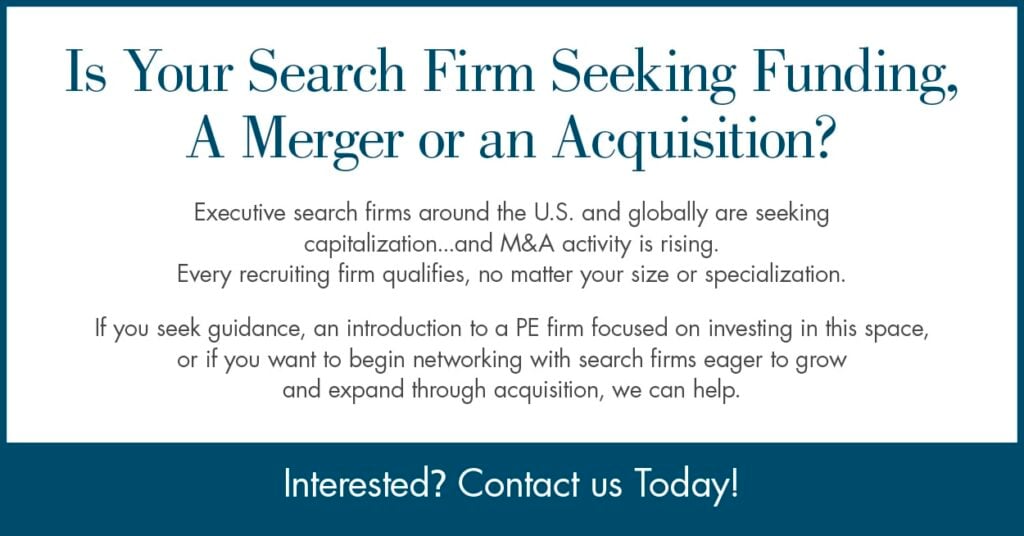Executive Hiring Predictions for 2023

January 2, 2023 – With market uncertainty on the minds of senior executives as we move into the new year, ON Partners recently asked its consultants to offer predictions and insights about the executive jobs they expect to be in demand in 2023. The past few years have seen one of the most volatile business environments in memory. Political, social, economic, health, and regulatory factors combined to form the perfect storm, creating a turbulent path for boards and those in the C-suite to navigate.
According to ON consultants, embracing transformation in an uncertain landscape, continued digital transformation efforts, and building strong financial organizations are among the key factors expected to drive executive hiring in the coming year.
“Companies should be investing in roles that support transformation and forward thinking in to 2023,” said Lynda Robey, partner. “We’ve learned from other market dips that companies that didn’t simply brace for the changes but actually leaned into transformation during changes came out winners. Readiness for what may come as well as the knowledge that the organization will be stronger for it coming out of any macro impact should be the focus.”
Partners Bryan Buck and Brad Westveld, who recently shared hiring predictions with Hunt Scanlon Media, said: “We’re likely to see more opportunistic hiring in the coming year. Companies need CEOs, CFOs, CSCOs, VPs of engineering, and top cybersecurity executives right now. There’s an opportunity for those not rushing to the sidelines to find top-tier talent despite a more conservative stance on broader hiring volume, talent that is the right fit in terms of skills, culture, and cost.”
So, what roles did our consultants highlight in our executive leadership hiring forecast for 2023?
No. 1: Chief Product Officer
Whether it be IT, supply chain, banking, or retail, companies across nearly every market sector have had to become more responsive and agile. The top product executive has been tasked with leading organizations to solve problems, differentiate in a crowded landscape, win customers or simply drive to digital if a company is behind the curve on that front.
Businesses lacking an innovative, execution-oriented product leader to navigate through the pandemic and after have suffered, while those that have been successful are either doubling down and expanding product talent and scope or looking for the person who can move them forward more quickly.
“The ability to put yourself in the customers’ shoes is a key capability for product leaders,” said Ms. Robey. “There was a time when companies only asked this of their marketing department, but it has quickly evolved to be expected of the product role as well. Product leaders who possess true customer empathy are in high demand.”
“Many of the product searches we’ve been doing in the past 12 months or so have been focused predominantly on driving innovation and future offerings vs. scaling an existing team or perfecting the relationship with engineering,” said John Morrow, partner. “Forecasting what customers want now and what they’ll want two to four years from now – and how to put that in motion – is most important.”
In such a hypercompetitive market, alignment and motivation around product is key. Product leaders must understand how to influence others and help get everyone aligned around product goals. Coming together around product milestones and deliverables helps organizations to be successful – and those organizations that have underestimated the importance of a strong product leader are now finding themselves playing catch-up.
“We’ve also seen a shift to focus more on platforms and services, so executive roles have evolved to encapsulate not just a product or platform but the associated wraparound services as well,” said Nina McMaster, partner. “The chief product officer requires a different set of skills than a CTO, chief digital officer, or a more traditional CIO profile.”
No. 2: Chief Operating Officer
A leader who has hands in all aspects of the customer experience and P&L and is equipped to pull levers to drive performance and growth is key, as is someone who has successfully navigated through choppy waters before.

Hunt Scanlon Looks Back at a Whirlwind Year in Executive Recruiting
The editorial team of Hunt Scanlon Media looks back at a whirlwind year of new business launches, world class search work, and mergers & acquisitions. The top stories we delivered in 2022 included TurnkeyZRG finding the next head of the NCAA, Arthur J. Gallagher’s acquisition of Frederickson Partners, along with expert insights into evolving roles and trends from firms like Artico Search and Daversa Partners, long with in-depth coverage of the industry’s most pressing issues, and more.
The ON Partners report notes that COOs must manage a complex, global network of relationships and quickly adopt new technologies and innovations. The broadening scope and higher impact of supply chain management require leaders who are strategic, profit-oriented, champions of change, and technically and operationally superior.
“Clients understandably tend to focus on numbers – spend dollars, budget, team size – but it’s really about the level of complexity and how it all fits together,” the report said. “In this market, where access to chips is limiting the manufacture of, well, just about everything, supply of ocean containers limits how quickly your product can ship; lack of drivers limits the ability to get resources where you need them – this is all about the complexity of the network. The person who can optimize the network, leverage relationships, and devise creative solutions, is the executive who is in the highest demand. The numbers are secondary.”
No. 3: Chief Executive Officer
CEOs with the ability to lead through and even embrace uncertainty, who possess emotional intelligence and self-reflection, and who have the vision to create a compelling value proposition that is bigger than simply profits will be highly sought after into the new year.
“We’re still seeing a ton of uncertainty,” said Matt Mooney, partner. “Based on history, I would bet we see a large number of CFO and CEO searches for private equity-backed companies. As the market becomes more challenging, companies will need a different type of leader to guide them through this period of uncertainty. Overall, I’m not sure anyone knows where we are in this economic cycle, so 2023 is starting to look like a coin flip.”
No. 4: Chief Financial Officer
The right leader will be strategic and able to scenario plan for how and where to strategically invest for future growth, not simply cut costs in preparation for a potential downturn. “CFOs who have raised funding, secured debt, completed strategic partnerships or partner affiliations are in demand as well,” said Mr. Westveld. “If we look six to 18 months out, the role is really one of a strategic arm of the CEO around funding, investment, debt, M&A, and strategic partnerships.”
Related: Retaining Your Employees During the Great Resignation
“From a functional standpoint, in VC-backed, earlier stage companies, I’ve seen an increased need for strong finance organizations,” said Ms. McMaster. “They’ve mentioned a desire for a CFO to provide strategic guidance and direction.”
No. 5: Chief Revenue Officer / VP Sales
With ownership of essentially everything that goes to market – sales, account management, customer success, and sometimes marketing as well – the CRO has emerged as a pivotal position on the executive leadership team. “Today’s CRO must have operational depth and an understanding of what tools and processes need to be put in place to scale a business vs. throwing a lot of bodies at a solution,” the ON Partners’ report said. “In areas like SaaS in particular, it’s important to think more strategically about the business. The CRO needs someone who can dive into the ops side, not just back-office tools but also market segmentation, direct sales, and channel strategy, sales rep compensation, and coverage models. The CRO role demands different skill-sets depending on the client. For a smaller growth company, someone who thrives in an early-stage environment and enjoys building things from scratch – hiring, putting key tools and processes in place – requires a unique person who is good at the heavy lifting required to acquire market share and evangelize.”
“I’ve also seen a need to bring in a strong CRO/VP sales – I think a strong sales leader who can potentially oversee the marketing organization in smaller companies as well is going to continue to be a desired role in 2023,” said Ms. McMaster. “That person can be different from one needed by a more established company doing $10 million to $20 million per year in revenue, who understands how to improve on and tweak the work of his or her predecessor.”
For a $100 million-plus organization, the CRO needs to understand how to lead large teams in a complex, matrixed environment selling across multiple market segments on a global basis.
No. 6: VP Hardware Engineering
Tasked with establishing policies and procedures that produce high-quality hardware products and directing and overseeing all aspects of hardware engineering activities within an organization, the head of hardware engineering is arguably in demand more than ever before.

“Hardware engineering roles are also likely to see more demand, said Sean Cantarella, partner. “These are difficult roles to recruit for and, given all the layoffs in tech, we might see a strong push for key hardware leaders to help create new and innovative products in a world that hasn’t seen a ton of ‘new’ gadgets lately.”
No. 7: Diverse Leadership
In addition, the ON Partners’ report says that diversity remains top of mind for hiring all positions right now. “Every search we undertake includes several diverse candidates, and it’s no longer something we discuss or call out as a must-have, it’s simply ingrained in our process,” said Ms. McMaster.
“The market for diverse talent has become very competitive over the past several years, particularly across IT leadership roles,” she said. “We’re committed to partnering closely with our clients to continue their diversity, equity, inclusion, and belonging initiatives. It is so important for some organizations that I think we will see a shift in mindset where we focus on candidates with transferable skills and core competencies for roles in order to help increase diversity, as opposed to focusing on ‘been there, done that’ types of leaders.”
Related: Hiring Top Talent in Unprecedented Times
Contributed by Scott A. Scanlon, Editor-in-Chief; Dale M. Zupsansky, Managing Editor; and Stephen Sawicki, Managing Editor – Hunt Scanlon Media












